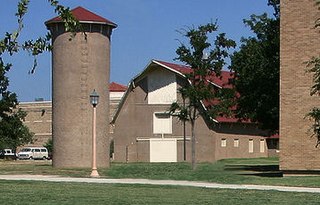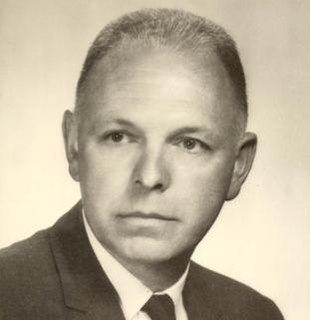Related Research Articles

The University of North Carolina is the multi-campus public university system for the state of North Carolina. Overseeing the state's 16 public universities and the NC School of Science and Mathematics, it is commonly referred to as the UNC System to differentiate it from its flagship, UNC-Chapel Hill.

The University of North Carolina at Greensboro is a public research university in Greensboro, North Carolina. It is part of the University of North Carolina system. UNCG, like all members of the UNC system, is a stand-alone university and awards its own degrees. UNCG is accredited by the Southern Association of Colleges and Schools Commission on Colleges to award baccalaureate, masters, specialist and doctoral degrees. It is classified among "R2: Doctoral Universities – High research activity".

Cullowhee is a census-designated place (CDP) in Jackson County, North Carolina, United States. It is located on the Tuckasegee River, and the permanent population was 6,228 as of the 2010 census.
Science education is the teaching and learning of science to non-scientists, such as school children, college students, or adults within the general public. The field of science education includes work in science content, science process, some social science, and some teaching pedagogy. The standards for science education provide expectations for the development of understanding for students through the entire course of their K-12 education and beyond. The traditional subjects included in the standards are physical, life, earth, space, and human sciences.

Western Carolina University (WCU) is a public university in Cullowhee, North Carolina. It is part of the University of North Carolina system.

Collin College is a public community college district in Texas. As defined by the Texas Legislature, the official service area of Collin College includes all of Collin County and Rockwall County and the portions of Denton County within the cities of Frisco and The Colony and the portions included within the Celina and Prosper school districts. Founded in 1985, the district has grown as the county has grown from around 5,000 students in 1986 to more than 58,000 credit and non-credit students.

Shaw University is a private, historically black university in Raleigh, North Carolina. Founded on December 1, 1865, Shaw University is the second oldest historically black college or university (HBCU) in the Southern United States. It has been called the "mother of African-American colleges in North Carolina" as the founding presidents of North Carolina Central University, Elizabeth City State University, and Fayetteville State University are all Shaw alumni. The founder of Livingstone College studied at Shaw, before transferring to Lincoln University. What became North Carolina Agricultural and Technical State University was located on Shaw's campus during its first year.
Francis Marion University is a public university near Florence, South Carolina. It is named in honor of American Revolutionary War Brigadier General Francis Marion.
The Graduate School of Education and Information Studies (GSE&IS) is one of the professional graduate schools at the University of California, Los Angeles. Located in Los Angeles, California, the school combines two distinguished departments whose research and doctoral training programs are committed to expanding the range of knowledge in education, information science, and associated disciplines. Established in 1881, the school is the oldest unit at UCLA, having been founded as a normal school prior to the establishment of the university. It was incorporated into the University of California in 1919. The school offers a wide variety of doctoral and master's degrees, including the M.A., M.Ed., M.L.I.S., Ed.D., and Ph.D., as well as professional certificates and credentials in education and information studies. It also hosts visiting scholars and a number of research centers, institutes, and programs.
The New York University Steinhardt School of Culture, Education, and Human Development is the secondary liberal arts and education school of New York University. It is one of the only schools in the world of its type.

Agricultural Education is the teaching of agriculture, natural resources, and land management. At higher levels, agricultural education is primarily undertaken to prepare students for employment in the agricultural sector. Classes taught in an agricultural education curriculum may include horticulture, land management, turf grass management, agricultural science, small animal care, machine and shop classes, health and nutrition, livestock management, and biology.
The South Carolina Governor's School for the Arts & Humanities (SCGSAH) is a public residential high school located in Greenville, South Carolina, United States. Founded in 1999 by Virginia Uldrick, the high school program provides pre-professional training in creative writing, dance, drama, music and visual arts to sophomores, juniors and seniors, in a master-apprentice, arts-centered community. The Governor's School also offers arts-intensive summer programs for 7th-through-12th-grade students.
The National Humanities Center (NHC) is an independent institute for advanced study in the humanities. The NHC operates as a privately incorporated nonprofit and is not part of any university or federal agency. The center was planned under the auspices of the American Academy of Arts and Sciences, which saw a need for substantial support for academic research in the humanities, and began operations in 1978.

Joseph Carlyle "Lyle" Sitterson was an American educator who served as chancellor of the University of North Carolina at Chapel Hill from February 16, 1966, to January 31, 1972.
The Pilar Barbosa Education Program is a program in Puerto Rico created as a means to provide professional development training opportunities for public school practitioners and educators in that city. The program serves as a catalyst for long term educational realignment using the graduates as agents of sustainable reform in the public school system.
Teachinghistory.org, also known as the National History Education Clearinghouse (NHEC), is a website that provides educational resources for the study of U.S. history.
Jackson County Public Schools is a public school district serving Jackson County, North Carolina, US. It is headquartered in the county seat of Sylva. The Jackson County School system is unique in the way that is still has a K–8 system with combined elementary and middle schools, with one central high school and one combined K–12 elementary/middle/high school. The county school system has eight schools, all with different histories and stories behind why they are the way they are today. The school system includes four kindergarten-through-8th-grade schools, two kindergarten-through-12th-grade schools, one traditional 9th-through-12th-grade high school, and one alternative 9th-through-12th-grade high school early college.
USC Shoah Foundation – The Institute for Visual History and Education, formerly Survivors of the Shoah Visual History Foundation, is a nonprofit organization dedicated to making audio-visual interviews with survivors and witnesses of the Holocaust and other genocides, a compelling voice for education and action. It was established by Steven Spielberg in 1994, one year after completing his Academy Award-winning film Schindler's List. In January 2006, the foundation partnered with and relocated to the University of Southern California (USC) and was renamed the USC Shoah Foundation – The Institute for Visual History and Education. In March 2019, the institute opened their new global headquarters on USC's campus.

The College of Education at Louisiana Tech University is one of the five colleges comprising Louisiana Tech University. The mission of the College traces back to the origins of Louisiana Tech in 1894, where the preparation of teachers was a mission of the institution. Today, the College of Education consists of three separate departments awarding thirty-five different academic degrees ranging from the baccalaureate to the doctoral levels.

The term learning environment can refer to an educational approach, cultural context, or physical setting in which teaching and learning occur. The term is commonly used as a more definitive alternative to "classroom", but it typically refers to the context of educational philosophy or knowledge experienced by the student and may also encompass a variety of learning cultures—its presiding ethos and characteristics, how individuals interact, governing structures, and philosophy. In a societal sense, learning environment may refer to the culture of the population it serves and of their location. Learning environments are highly diverse in use, learning styles, organization, and educational institution. The culture and context of a place or organization includes such factors as a way of thinking, behaving, or working, also known as organizational culture. For a learning environment such as an educational institution, it also includes such factors as operational characteristics of the instructors, instructional group, or institution; the philosophy or knowledge experienced by the student and may also encompass a variety of learning cultures—its presiding ethos and characteristics, how individuals interact, governing structures, and philosophy in learning styles and pedagogies used; and the societal culture of where the learning is occurring. Although physical environments do not determine educational activities, there is evidence of a relationship between school settings and the activities that take place there.
References
- ↑ Reforming Educators: Teachers, Experts, and Advocates, Samuel Mitchell, pp 44-46